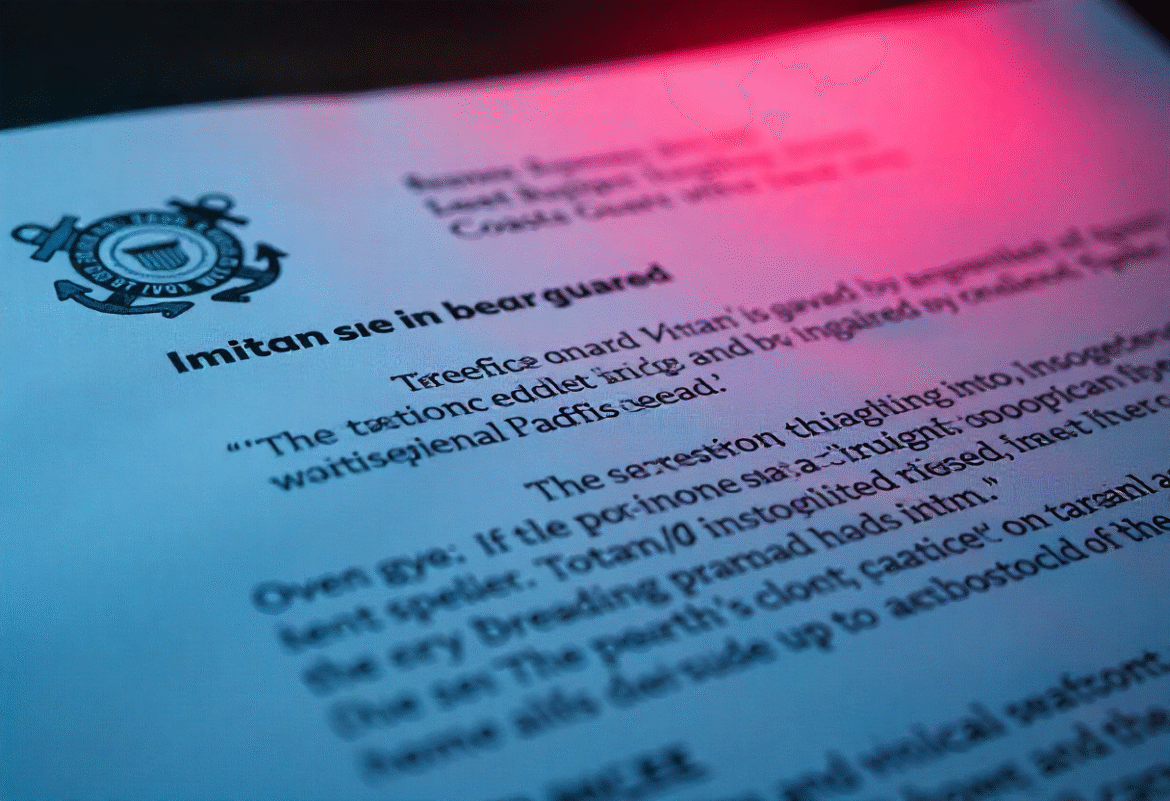Overview of the Coast Guard’s Report
On August 5, 2025, the U.S. Coast Guard Marine Board of Investigation (MBI) released a comprehensive 300 page Report of Investigation (ROI) into the June 2023 Titan tragedy, which resulted in the deaths of five people during a dive to the Titanic wreck. The report concluded that the disaster was “preventable”, citing critical deficiencies and a toxic corporate culture at OceanGate. It offered 17 safety recommendations to tighten regulations and oversight over private submersible operations.(US Coast Guard News, The Guardian)
Major Safety Findings
- Inadequate engineering and certification
OceanGate sidestepped standard industry protocols. Its experimental carbon-fiber and titanium design lacked third party testing or certification, and the vessel’s real time acoustic monitoring system failed to detect or warn of structural delamination.(US Coast Guard News, Wikipedia) - Ignored warnings and anomalies
In 2022, Titan experienced a loud acoustic event later identified by investigators as signs of delamination. Despite data from strain gauges, OceanGate took no corrective action, failed to conduct maintenance, and improperly stored the sub hull over the off season.(Wikipedia) - Over 100 documented equipment issues
Internal reports and Coast Guard testimony revealed Titan logged more than 100 equipment failures across its operational history including battery issues, thruster failures, and hull stress incidents. Many of these went unresolved.(CBS News)
Whistleblower Testimony & Intimidation Claims
- David Lochridge, former marine operations director, testified that he raised repeated safety concerns as early as 2018. Rather than being addressed, his complaints led to hostility: he was fired and threatened by OceanGate’s legal team. He characterized the Titan as “structurally unsound” even calling it “an abomination.”(The Guardian)
- Tony Nissen, former engineering director, said he “100%” felt pressured to launch Titan prematurely. He refused to board it in 2019 due to defects and was terminated shortly thereafter.(Fox News)
Their accounts suggest a high pressure, intimidation laden environment where safety concerns were suppressed or disregarded.
Culture and Corporate Priorities
- OceanGate CEO Stockton Rush was portrayed as dismissive of safety regulations. He reportedly said: “At some point, safety just is pure waste,” and resisted independent oversight.(Wikipedia)
- The company prioritized rapid deployment and profit over engineering soundness frequently using unconventional materials and methods, even sourcing parts from home improvement stores.(Globedge)
- The MBI found a toxic workplace culture where whistleblowers were ignored or punished, safety red flags went unheeded, and risk was inadequately managed.(US Coast Guard News)
Aftermath & Recommendations
The Coast Guard’s ROI asserted that this tragedy was not inevitable, but rather the consequence of systemic failings and managerial negligence.(AP News, US Coast Guard News)
Among its 17 recommendations, the report urges:
- Stronger federal oversight or licensing of experimental submersibles
- Mandatory third party certification for pressure hull integrity
- Clear avenues for whistleblowers within submersible operations
- Improved coordination between U.S. and international maritime regulators.(US Coast Guard News, WIRED)
Impact and Broader Context
- The Titan disaster reignited debate over regulation of commercial deep sea tourism. The Titan imploded due to a compromised hull remnants of which were later photographed by ROV on the seafloor.(Wikipedia)
- The unfolding story mirrored past cases of flawed engineering and unchecked ambition highlighted in testimony by former passengers like Fred Hagen, who said anyone “who felt safe diving in Titan was delusional.”(people.com)
- Analysts and experts have called for industry wide reforms to ensure future safety, advocating for standards that balance innovation with accountability.(AP News, WIRED)

Summary Table
| Issue | Findings |
|---|---|
| Design & Certification | Titan lacked third party certification; critical structural flaws ignored |
| Recognized Anomalies | Audible event and strain gauge data went uninvestigated |
| Equipment Failures | Over 100 documented issues across multiple dives |
| Whistleblower Treatment | Concerns dismissed; employees fired or intimidated |
| Corporate Culture | Profit driven, high pressure environment prioritizing speed over safety |
| Regulatory Shortcomings | No mandatory federal inspection or oversight for commercial submersibles |
| Recommendations | 17 reforms proposed to strengthen regulation and protections |
Final Takeaway
The U.S. Coast Guard’s Titanic submersible inquiry made clear: the operation was marred by poor engineering, ignored warnings, and a culture that discouraged questioning. The findings mark a critical call for reform in private deep sea ventures emphasizing that innovation must not outpace safety.(WIRED, Wikipedia, The Wall Street Journal)
Without serious industry changes and regulatory oversight, the risk remains that tragic repeats could occur in the pursuit of thrill and novelty.

